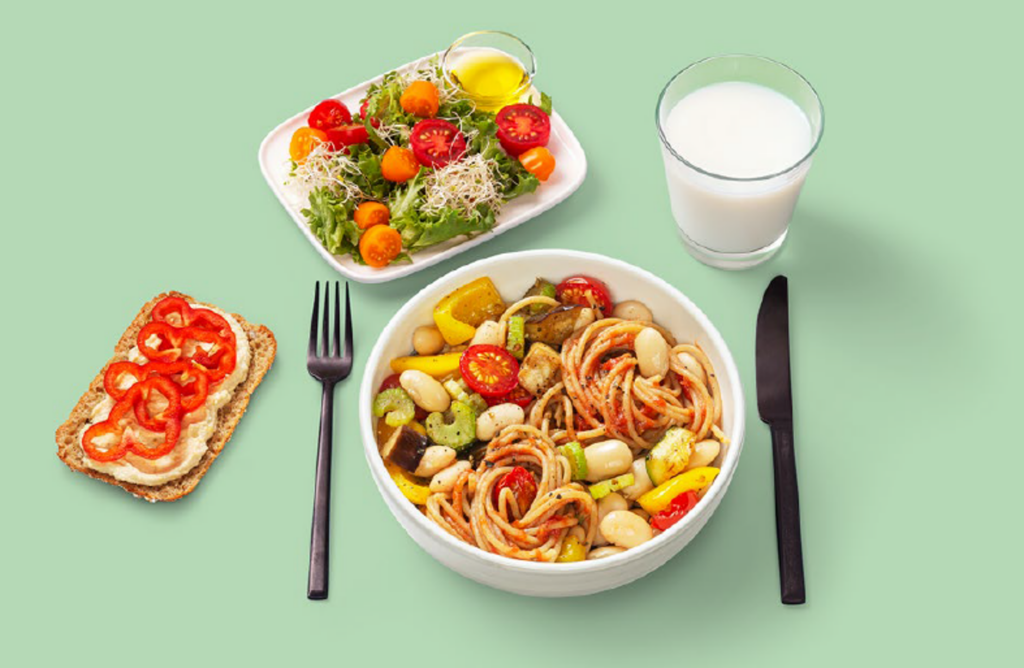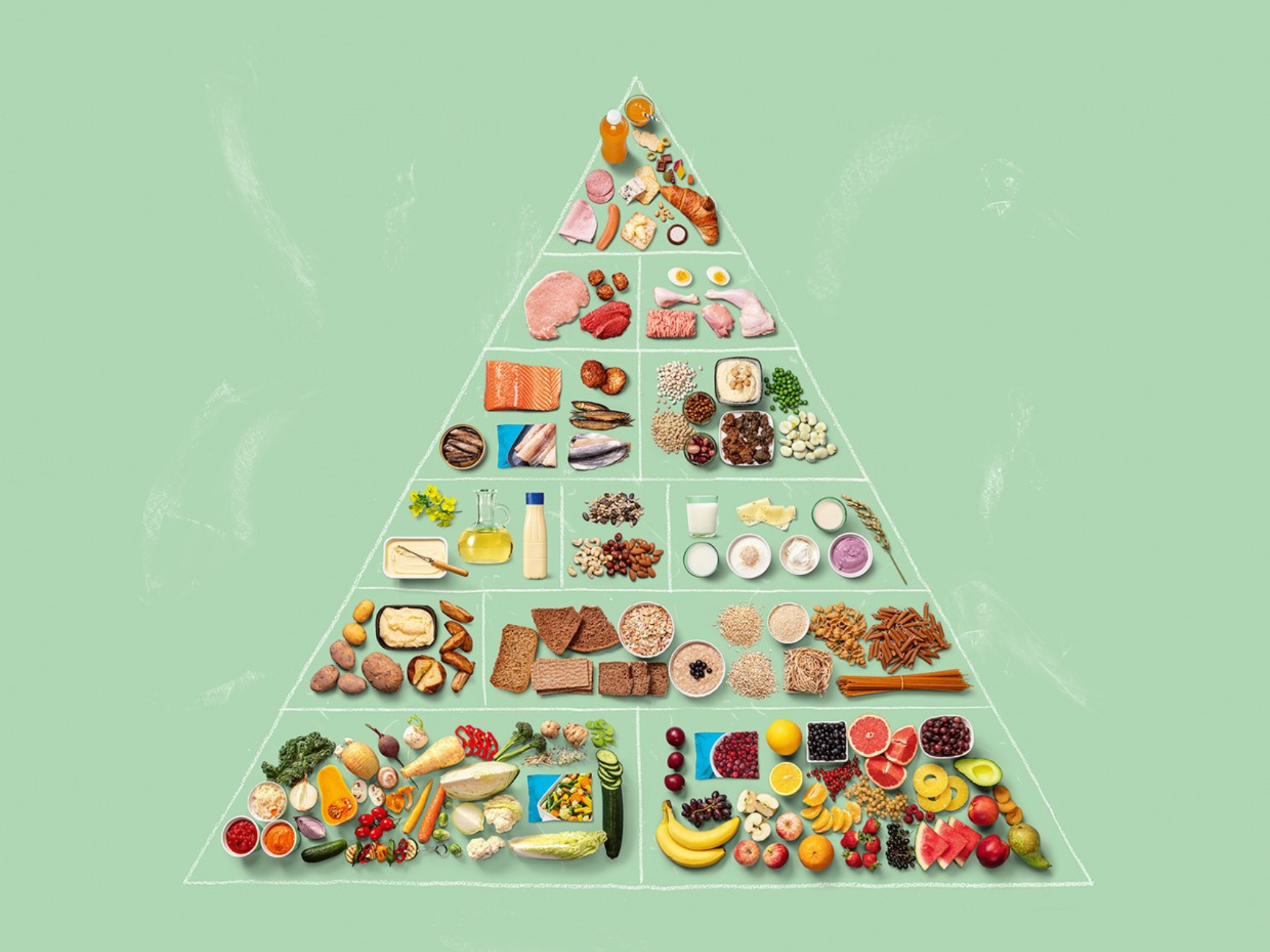In New Dietary Guidelines, Finland Becomes Latest Country to Promote Shift to Plant-Based Foods
4 Mins Read
To improve public and planetary health, Finland has encouraged a transition from meat-heavy diets to plant-based proteins in its revised dietary guidelines.
Months after Norway championed “mostly plant-based” eating habits in its food-based dietary guidelines, one of its Nordic neighbours is joining the call too.
The Finnish Food Authority has updated its dietary recommendations to enhance the health of both its population and the planet, calling for a protein shift from meat to plant-based sources like legumes, whole grains, and tofu.
Produced by a working group led by the National Nutrition Council, these are Finland’s first new dietary guidelines since 2014, and urge people to limit red meat intake to 350g per week (down from 500g), while increasing the amount of fruits, vegetables, berries, legumes, and whole grains in their diet.
In the last couple of years, Taiwan, Canada, Germany and Austria have all revised their national recommendations to better highlight plant-based foods. France is facing calls to do the same now, while scientists working on the US’s upcoming guidelines have sparked debate by proposing a shift from red meat to plant proteins.
Plant proteins over red and processed meats

The updated guidelines ask Finns to reduce the consumption of red meat like beef, pork and lamb by 30% (twice a week), limit processed meat intake (such as cold cuts or sausages) as much as possible, and avoid eating meat as a snack almost completely. These proteins have been linked to a host of ailments, including cancer, obesity, type 2 diabetes, and heart disease.
These should instead be replaced by plant proteins like legumes, which have been explicitly recommended as planet-friendly and health-promoting sources. The guidelines suggest consuming 50-100g of legumes every day, which includes foods like tofu and hummus.
Jelena Meinilä, a nutrition expert at the University of Helsinki, outlined that Finns only eat 13g of legumes per day. “Legumes are an excellent source of plant protein. Together with cereal products, they can replace meat in the diet, which also reduces the environmental impact of food consumption,” she said.
“Our common health challenge is to increase and diversify the consumption of whole grains, vegetables, berries and fruits and to reduce the consumption of red meat and meat products,” said Prof Maijaliisa Erkkola, chairman of the recommendation working group.
But the 350g per week limit of red meat is still much higher than what’s stipulated in the EAT-Lancet Commission’s Planetary Health Diet, which is associated with a 30% lower risk of death from all causes and a 17% reduction in global food emissions. It suggests keeping red meat intake under 98g a week, 72% lower than Finland’s recommendation.
Domestically produced legumes like peas and white beans are recommended as a more sustainable choice than soybeans. “In Finland, the range of legumes that thrive in local conditions is currently limited, leading to increased imports in the short term,” the guidelines read. “However, developing new varieties and cultivation methods can expand the selection of legumes suitable for Finnish conditions in the long run.
The experts also advocate for greater whole grain consumption (up to 90g daily in dry weight), which – on top of their protein content – are a great source of fibre, vitamins and minerals, and other useful compounds not classified as nutrients.
Fortified plant-based foods for the win

Crucially, Finland’s new dietary guidelines call for an increase in the amount of fruits, vegetables and berries, up from 500g a week to a range of 500-800g now.
They also suggest limiting animal fats like butter and tropical oils such as palm and coconut, swapping them for plant-based spreads high in unsaturated fatty acids instead.
“By carefully planning a varied vegan diet and using fortified foods and supplements, it is possible to meet average nutritional requirements. Particular attention should be paid to ensuring adequate intake of vitamin B12, vitamins A and D, calcium, and iodine, through fortified foods and supplements,” the 120-page document reads.
This is where plant-based milk comes in, with Finland recommending fortified products as important sources of vitamins D, B2 and B12, calcium, and iodine. Major sources of vitamin A, meanwhile, include vegetables rich in beta-carotene (like carrots, sweet potatoes, kale, broccoli, and spinach), as well as fortified spreads.
The suggested changes are intended to be more aligned with the joint Nordic Nutrition Recommendations, which were updated last year to incorporate climate aspects in a bid to advance the Nordic Vision to be the world’s “most sustainable and integrated region” by 2030.
“Ultimately, how one eats is a personal choice, but it’s good to be aware that a more plant-based diet not only reduces health risks, but also reduces climate stress, eutrophication and pressure on global species extinction,” said Juha-Matti Katajajuuri, a specialist researcher at the Natural Resources Institute.



